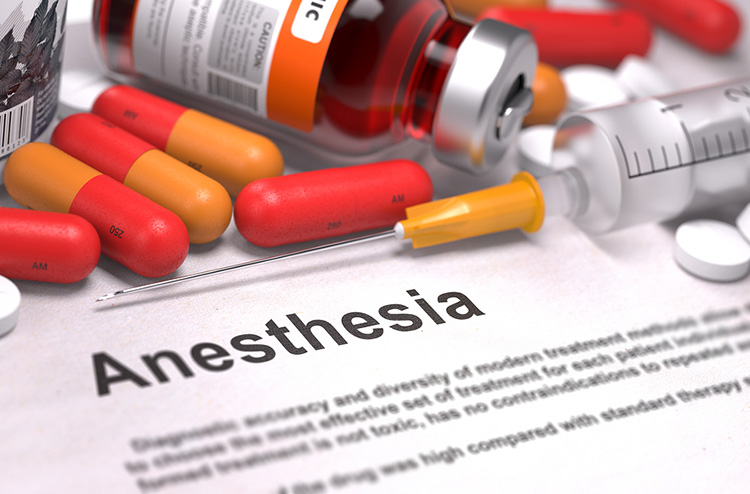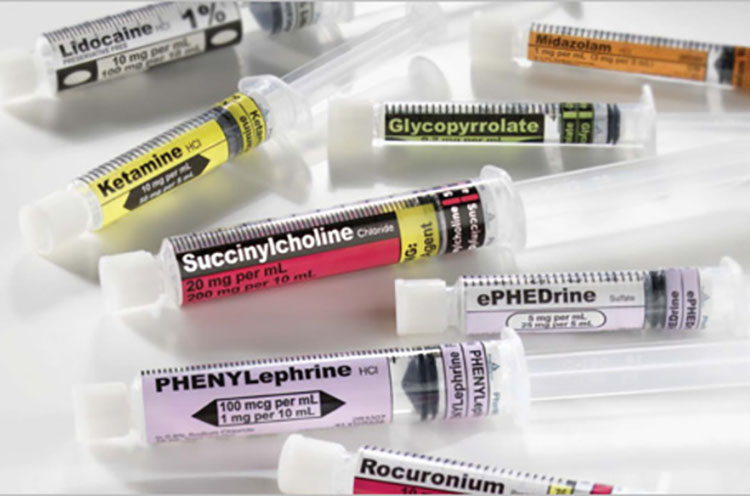
Indian Pharmaceutical Companies play a significant role in the manufacturing and distributing of anesthetic APIs in the Asian and global markets. API suppliers in India are emerging successfully with their range and quality of various therapeutic categories of APIs and API intermediates. According to IBEF (India Brand Equity Foundation), in January 2021, the Central government announced to set up three bulk drug parks at the cost of Rs. 14,300 crore (US$ 1,957 million) to manufacture chemical compounds or active pharmaceutical ingredients (APIs) for medicines and reduce imports from China.
Active Pharmaceutical Ingredient (API) is an essential substance in any medication as it is a biologically active component. APIs are used in capsules, tablets, injectables, and more to produce the intended effects to cure the disease. Out of various APIs, we will discuss the 7 best APIs for the Anesthetics Category here. But firstly, let us understand the term Anesthetics.

What are Anesthetics Drugs?
As per the article of Britannica, Anesthetics Drugs can be defined as any agent that produces a local or general loss of sensation, including pain. Anesthetics achieve this effect by acting on the brain or peripheral nervous system to suppress responses to sensory stimulation. The unresponsive state thus induced is known as anesthesia. It is further subdivided into two categories as General anesthesia and Local anesthesia. General anesthesia involves loss of consciousness, usually to relieve the pain of surgery. Local anesthesia involves loss of sensation in one area of the body by the blockage of conduction in nerves. In simple words, the medication used to induce anesthesia is called an anesthetic.
Sr.No. : 1
Name of API : Lidocaine Base
CAS No. : 137-58-6
Molecular Formula : C14H22N2O
Uses: Lidocaine is a synthetic aminoethylamide with local anesthetic and antiarrhythmic properties. Lidocaine stabilizes the neuronal membrane by binding to and inhibiting voltage-gated sodium channels, thereby inhibiting the ionic fluxes required for the initiation and conduction of impulses and affecting local anesthesia.
For more details, visit https://pubchem.ncbi.nlm.nih.gov/compound/3676
Name of API : Lidocaine HCl
CAS No. : 73-78-9
Molecular Formula : C14H23ClN2O
Uses: Lidocaine HCl is a local anesthetic and cardiac depressant used as an antiarrhythmic agent. Its actions are more intense and its effects more prolonged than those of PROCAINE, but its duration of action is shorter than that of BUPIVACAINE or PRILOCAINE.
For more details, visit https://pubchem.ncbi.nlm.nih.gov/compound/6314

Sr.No. : 2
Name of API : Bupivacaine Base
CAS No. : 38396-39-3
Molecular Formula : C18H28N2O
Uses: The local amide anesthetics are commonly used for pain control during minor surgery or invasive procedures such as biopsies, small excisions, or dental work. These local anesthetics have not been linked to serum enzyme elevations. Still, when given as constant infusions or repeated injections, they have been occasionally mentioned as possible causes of clinically apparent liver injury. For more details, visit https://pubchem.ncbi.nlm.nih.gov/compound/2474
Name of API : Bupivacaine HCl
CAS No. : 18010-40-7
Molecular Formula : C18H29ClN2O
Uses: It is widely used as a local anesthetic agent. For more details, visit https://pubchem.ncbi.nlm.nih.gov/compound/64737
Sr.No. : 3
Name of API : Levobupivacaine Base
CAS No. : 27262-47-1
Molecular Formula : C18H28N2O
Uses: It has a role as a local anesthetic, adrenergic antagonist, amphiphile, etc. For more details, visit https://pubchem.ncbi.nlm.nih.gov/compound/92253
Name of API : Levobupivacaine HCl
CAS No. : 27262-48-2
Molecular Formula : C18H29ClN2O
Uses: Levobupivacaine Hydrochloride is the hydrochloride salt of levobupivacaine, an amide derivative with the anesthetic property. Levobupivacaine reversibly binds voltage-gated sodium channels to modulate ionic flux and prevent the initiation and transmission of nerve impulses (stabilizing neuronal membrane), resulting in analgesia and anesthesia. For more details, visit https://pubchem.ncbi.nlm.nih.gov/compound/117965

Sr.No. : 4
Name of API : Ropivacaine Base
CAS No. : 84057-95-4
Molecular Formula : C17H26N2O
Uses: The local amide anesthetics are commonly used for pain control during minor surgery or invasive procedures such as biopsies, small excisions, or dental work. These local anesthetics have not been linked to serum enzyme elevations. Still, when given as constant infusions or repeated injections, they have been occasionally mentioned as possible causes of clinically apparent liver injury. For more details, visit https://pubchem.ncbi.nlm.nih.gov/compound/175805
Name of API : Ropivacaine HCl
CAS No. : 132112-35-7
Molecular Formula : C17H29ClN2O2
Uses: Ropivacaine HCl is an anilide used as a long-acting local anesthetic. It has a differential blocking effect on sensory and motor neurons. For more details, visit https://pubchem.ncbi.nlm.nih.gov/compound/6918111
Sr.No. : 5
Name of API : Mepivacaine Base
CAS No. : 96-88-8
Molecular Formula : C15H22N2O
Uses: Mepivacaine is used as a local amide-type anesthetic. It acts as a local anesthetic and a drug allergen. For more details, visit https://pubchem.ncbi.nlm.nih.gov/compound/4062
Name of API : Mepivacaine HCL
CAS No. : 1722-62-9
Molecular Formula : C15H23ClN2O
Uses: Mepivacaine hydrochloride is the hydrochloride salt of mepivacaine. It is used as a local anesthetic.

Sr.No. : 6
Name of API : Prilocaine Base
CAS No. : 721-50-6
Molecular Formula : C13H20N2O
Uses:Prilocaine is a toluidine derivative and intermediate-acting amino amide with the local anesthetic property. For more details, visit https://pubchem.ncbi.nlm.nih.gov/compound/4906
Name of API : Prilocaine HCl
CAS No. : 1786-81-8
Molecular Formula : C13H21ClN2O
Uses: Prilocaine HCl is a local anesthetic that is similar pharmacologically to LIDOCAINE. Currently, it is used most often for infiltration anesthesia in dentistry. For more details, visit https://pubchem.ncbi.nlm.nih.gov/compound/92163
Sr.No. : 7
Name of API : Benzocaine HCl
CAS No. : 23239-88-5, 105931-72-4
Molecular Formula : C9H12ClNO2
Uses: Benzocaine HCl is a surface anesthetic that prevents the transmission of impulses along nerve fibers and at nerve endings. For more details, visit https://pubchem.ncbi.nlm.nih.gov/compound/10214462
NEWEDGE Overseas has a robust 2000+ Active Pharmaceutical Ingredients portfolio that includes many hard-to-find APIs, consolidated over a decade. Kindly contact us for your requirements for APIs.